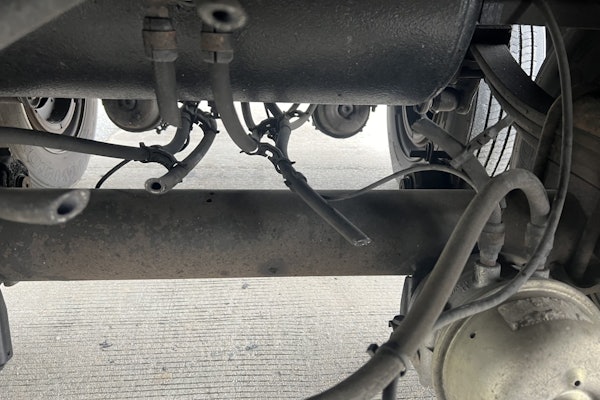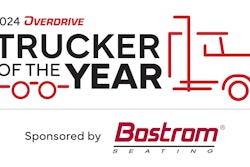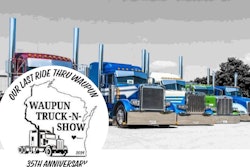By Randy Grider
Editor
[email protected]
If you’ve followed the recent reports concerning truckers’ ability to cheat on random drug and alcohol tests, it’s apparent that the “Just Say No” campaign is only as good as the penalties backing anti-drug laws.
Government investigation of random drug testing of truckers, which spurred a congressional hearing in November, reached some interesting conclusions.
First and foremost, it’s fairly easy for unscrupulous truckers to get around the system.
In an undercover operation by the Government Accountability Office, 24 collection sites nationwide were tested. Investigators invented two trucking companies, used fake driver’s licenses and posed as truckers to gain access to the sites. The probe showed how simple it was for a drug user to send someone else to take a drug test.
There were other breakdowns in protocol at the tested sites. Three-quarters of the sites didn’t restrict access to items that could alter urine specimens.
The GAO also found compliance lacking among some carriers, especially small carriers and owner-operators. Many used third-party administrators that don’t have the authority to enforce regulations if drug use is indicated.
The Federal Motor Carrier Safety Administration’s oversight also was challenged. Even when FMCSA is able to ensure that carriers and others are in compliance with drug-testing requirements, urine tests can be undermined. Investigators showed that easy-to-obtain drug-masking products can be brought to the sites undetected.
Outside the government probe, there are other problems with truckers who are actually caught using illegal drugs. Often a driver simply moves on to another carrier after failing a drug test. If that next carrier has lax hiring procedures, it may employ the driver without ever knowing he or she had failed a drug test.
The American Trucking Associations has lobbied for a national clearinghouse to report drivers who fail drug and alcohol tests. ATA says a clearinghouse would help keep the job-hopping drivers from being hired by another carrier after failing a drug test.
Other organizations like the Owner-Operator Independent Drivers Association oppose a national database. OOIDA says there are no guarantees that the driver wouldn’t be hired. OOIDA also sees potential privacy issues arising from how the data collected by the government or third-party providers would be used, and accuracy remains a concern.
Now, it should be noted that the percentage of truckers failing drug and alcohol tests is low – about 2 percent. This is far better than the national workforce average. While the industry can take pride in these statistics, we have to remember that 2 percent is still thousands of drivers on the highways.
While it is unrealistic to think that the number of truckers using drugs and alcohol will ever be zero, it is time to take a zero-tolerance stance.
First, the FMCSA must shore up its drug-testing requirements and oversight. It’s inexcusable for drug-testing collection sites to be so easily subverted. Protocols at each site must be followed to the letter of the law. Third-party providers who neglect protocol should lose their licenses.
As for a national clearinghouse, it wouldn’t be needed if drivers lose their commercial driver’s license for a set period (let’s say one year) if they are proven to operate, or attempt to operate, a commercial vehicle while under the influence of a controlled substance.
Obviously, there would be an argument about false-positive results caused by over-the-counter products and other medications. There would have to be an appeals process for anyone wishing to challenge a positive test.
Additional specimens, such as a hair samples, could be sent to another facility for more sophisticated tests. If the test results were negative, the driver wouldn’t have to pay for the testing. If positive, the costs of the additional testing would be charged to the driver.
Of course, testing facilities would be required to report final test results to the driver’s home state.
If you think this is too harsh a penalty, ask yourself this question: Do you really want your wife, child or loved one to share the same road with a driver behind the wheel of an 80,000-pound rig while under the influence?
Just Say No.







